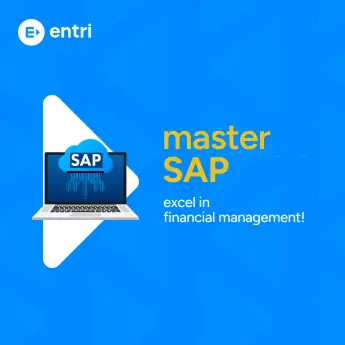Table of Contents
SAP MM is a vital module within the SAP ERP system that helps companies manage procurement and inventory functions. An SAP MM analyst is responsible for system configuration, process design, and troubleshooting related to material management. As industries continue to embrace digital transformation, the demand for skilled SAP MM analysts has risen steadily. This article is designed to provide a comprehensive overview of salary trends, strategies for increasing your earning potential, and insights into future career prospects in this field.
Key Points:
- Role Definition: SAP MM analysts manage procurement, inventory, and materials planning.
- Market Relevance: Growing digital adoption has increased demand for these professionals.
- Career Insights: Understanding salary benchmarks and growth strategies is essential for career planning.
According to top-ranking industry sources such as Glassdoor, Payscale, and LinkedIn salary insights, compensation packages for SAP MM analysts vary significantly based on factors such as geographic location, experience, and industry demand.
SAP MM Analyst Salary: Trends by Location
One of the most critical factors in determining an SAP MM analyst’s salary is the location where they work. Salary trends can vary not only from country to country but also within different cities of the same region. Below, we provide a table summarising typical salary ranges and some key factors that influence these figures.
- Economic Conditions: A region’s overall economic health can directly affect salary levels.
- Cost of Living: Higher living costs typically drive higher salary offerings.
- Industry Presence: Areas with a strong presence of multinational corporations or industries reliant on ERP systems tend to offer better compensation.
- Experience & Skills: In every location, the depth of expertise, certification status, and years of experience play a crucial role.
Many top-ranking websites like Indeed and LinkedIn have confirmed that cities such as New York, London, and Sydney offer some of the highest salary ranges for SAP MM analysts, primarily due to concentrated industry demand and competitive work environments.
SAP MM Analyst Salary: How to Increase
Enhancing your salary as an SAP MM analyst often involves a combination of skill development, professional experience, and strategic career moves. Here are 10 practical ways to boost your earning potential in this field:
-
Invest in Certification:
- Obtain relevant SAP certifications (e.g., SAP Certified Application Associate).
- Stay updated with new modules and features.
-
Expand Technical Skills:
- Learn complementary modules like SAP SD (Sales and Distribution) or SAP WM (Warehouse Management).
- Gain proficiency in related software tools.
-
Develop Soft Skills:
- Enhance communication, leadership, and problem-solving skills.
- Attend workshops and seminars on project management.
-
Gain Hands-On Experience:
- Engage in real-world projects, either through your current employer or freelance consulting.
- Seek opportunities that allow you to work on full-cycle implementations.
-
Network with Industry Peers:
- Attend industry conferences, webinars, and local meetups.
- Connect with other professionals on platforms like LinkedIn.
-
Stay Abreast of Industry Trends:
- Regularly read industry blogs, join online forums, and follow thought leaders.
- Understand evolving market demands and emerging technologies.
-
Seek Advanced Roles:
- Aim for roles such as SAP MM Lead Analyst or ERP Project Manager.
- Look for job postings that require higher responsibilities and offer competitive compensation.
-
Leverage Performance Reviews:
- Use performance evaluations as opportunities to negotiate salary increases.
- Document achievements and contributions to company projects.
-
Consider Relocation or Remote Opportunities:
- Explore positions in high-paying regions or companies that offer remote work.
- Understand the cost-benefit aspects of relocating.
-
Pursue Continuous Learning:
- Enrol in advanced training programs and courses.
- Participate in certification renewal programs to keep skills up-to-date.
Each of these strategies requires planning and commitment, but when executed well, they can help you command a higher salary in your career. Data from industry surveys suggest that professionals who continuously invest in learning and networking tend to see an upward trajectory in their compensation.
Join Entri’s SAP MM Training Course today!!
Master SAP with Expert-Led Courses
Unlock your potential with our comprehensive SAP courses! Learn essential modules like SAP MM (Materials Management), SAP SD (Sales and Distribution), and SAP FICO (Financial Accounting and Controlling) from industry experts.
Know MoreSAP MM Analyst Salary: Future Scope
The role of an SAP MM analyst is evolving with technological advances and shifting business needs. Here are five trends to watch:
-
Increased Digital Transformation:
- Companies are accelerating their digital journeys.
- ERP solutions are increasingly integrated with AI and machine learning tools.
-
Cloud Adoption:
- Migration to cloud-based ERP systems is on the rise.
- Analysts with cloud integration experience are in high demand.
-
Automation in Supply Chain Management:
- Automation of procurement processes and inventory management is becoming commonplace.
- This trend requires analysts to understand both technical and operational aspects.
-
Data-Driven Decision Making:
- Big Data and analytics are shaping decision-making processes.
- SAP MM analysts are expected to interpret data to optimize material management strategies.
-
Evolving Regulatory Compliance:
- Changing regulatory landscapes require companies to update their ERP systems.
- Professionals who stay informed about compliance requirements can add significant value.
By staying ahead of these trends, SAP MM analysts can position themselves for long-term success. Employers value professionals who not only understand current systems but are also prepared for future changes in technology and industry practices.
Conclusion
In summary, the landscape for SAP MM analysts is dynamic, with salary ranges influenced by location, expertise, and industry demands. By understanding regional trends and actively pursuing professional development, analysts can significantly improve their earning potential. Whether you’re considering certification courses, advanced technical training, or even relocation for better opportunities, a strategic approach to your career will help you thrive in this competitive field.
Key takeaways include:
- Regional Variations: Understand how geographic factors affect your salary.
- Career Development: Continuous learning and certification are crucial.
- Future Outlook: Embrace technological trends such as cloud computing and automation to remain competitive.
Ultimately, the journey to a rewarding career as an SAP MM analyst is paved with constant improvement and adaptation to market trends.
Join Entri’s SAP MM Training Course today!!
Master SAP with Expert-Led Courses
Unlock your potential with our comprehensive SAP courses! Learn essential modules like SAP MM (Materials Management), SAP SD (Sales and Distribution), and SAP FICO (Financial Accounting and Controlling) from industry experts.
Know MoreFrequently Asked Questions
1. How can I increase my salary as an SAP MM analyst?
Consider investing in relevant SAP certifications, expanding your technical skill set, networking, and seeking advanced roles within your organization or in high-demand regions. Continual learning and practical experience are key.
2. What future trends should I be aware of as an SAP MM analyst?
Key trends include the shift towards cloud-based ERP systems, increasing use of automation and AI in supply chain management, data-driven decision-making processes, and evolving regulatory requirements. Staying updated with these trends can help you stay competitive.
3. Are there specific courses that can help me advance my SAP MM skills?
Yes, many institutions offer advanced SAP training. These courses cover everything from technical configuration to strategic management. It’s important to select courses that are updated regularly to reflect current market needs.










